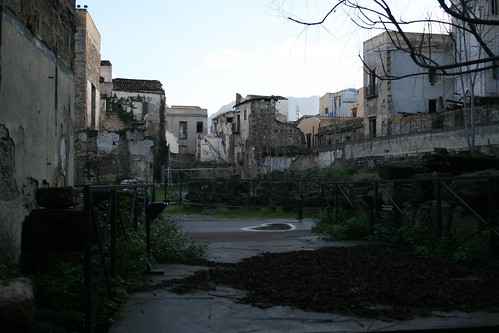
Venice is a lot like Orlando, FL (rustic charm and history vs. plastic tackiness aside). As far as I could tell, it was full of crowds and overpriced food and souvenirs, and not too many people actually live there (on most days there are more tourists than residents in the entire city). It feels a lot like one big theme park.
But if Orlando is the place you must see before turning ten, Venice is a place to see before turning dead. In other words, it's a perfect bucket-list destination, even if you can see most of its sites in a few days. It's definitely the most beautiful city I've ever seen; just getting lost in it (which is easy enough to do) is an attraction all in itself. A few things that stuck out to me:
1) Definitely the coolest attraction in the city is the Doge's Palace and St. Mark's Square. Once upon a time, the Venetian Navy dominated the Mediterranean world and the small city-state challenged the massive Ottoman Empire as a center of regional trade. Venice was a republic - albeit one with a complex system of government that would strike most Americans as quite foreign - and had a figurehead leader called the Doge who was elected for life. The palace was one of the most beautiful buildings I saw in all of Europe.
2) Although it seems like kind of a cushy job, being the Doge had many, many downsides. He was expected to be the lifelong servant of the Venetian people, not their leader or king, and he was reminded of this whenever he went outside to give a speech to his people (or indeed upon being inaugurated). Standing at the top of the Great Staircase, he'd be dwarfed by gigantic statues of Mars and Neptune, meant to symbolize for all the people his relative insignificance. What's more, from his angle (which I got to see) he was being mooned by both Gods (and it's hard to describe the extent of the mooning going on here; these are massive statues). I'm not sure if that was intentional or not, but I would have preferred a different greeting upon leaving my home.
3) In fact, the Doge couldn't really leave home, and he had to get special permission if he ever wanted to leave Venice (keep in mind that this is a lifelong job). The palace map room is known as one of its most beautiful, but it struck me as an extremely sad place. I imagine the Doges of Venice looking upon a vast world they'd never get to see, wondering what adventures lay outside the city borders, their huge palace a prison where they were always watched. It seems to me a very lonely existence.






